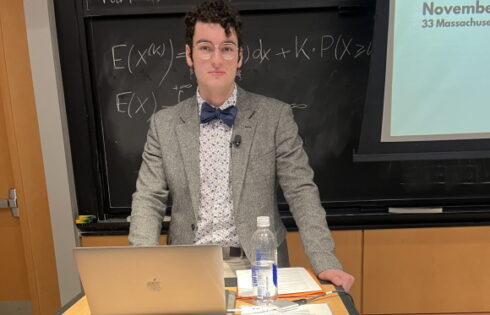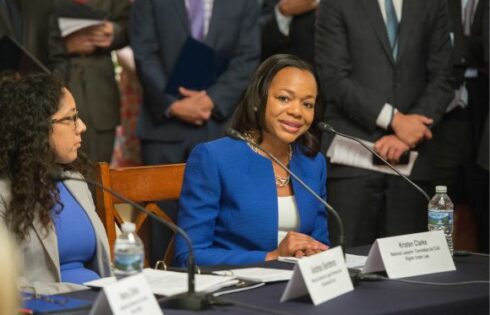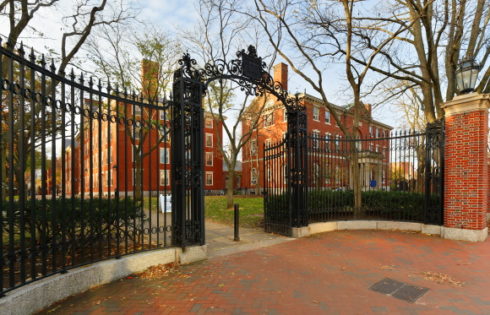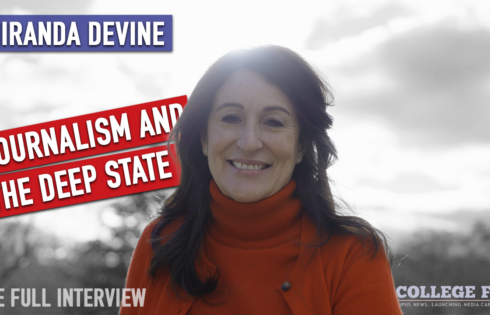
He was not ‘forced to choose’ denouncing Islam or receiving a lower grade
An Arizona federal court has dismissed a lawsuit alleging anti-Islam hostility in an Arizona community college course.
The Council on American-Islamic Relations brought the suit on behalf of Mohamed Sabra, a student in Prof. Nicholas Damask’s 100-level world politics course at Scottsdale Community College. It claimed that a module entitled “Islamic Terrorism” unconstitutionally disapproved of and was hostile toward Islam.
“Examining the course as a whole, a reasonable, objective observer would conclude that the teaching’s primary purpose was not the inhibition of religion,” U.S. District Judge Susan Brnovich ruled. “Curriculum that merely conflicts with a student’s religious beliefs does not violate the Free Exercise Clause.”
The judge used the Lemon test to determine the course did not violate First Amendment provisions on free exercise or the establishment of religion. The test states that government actions toward religion are only lawful if they have a secular purpose, do not advance or inhibit a religion, and do not become excessively entangled with religion in any way.
While Sabra alleged that he was “forced to choose between denouncing his religion by selecting the ‘correct’ answer” or receiving a lower grade on a quiz, Brnovich countered that Sabra only had to “demonstrate an understanding of the material taught.”
MORE: Legal warning prompts MCC to back off threat to censor Damask’s course
The student was not “required to adopt the views expressed by Dr. Damask or the authors Dr. Damask cited to in his course,” and the professor did not inhibit Sabra’s personal worship at any point in his classroom.
UCLA Law Prof. Eugene Volokh called the ruling “an important victory for academic freedom” in a brief analysis on his blog.
Professors, “including those at public colleges, have to be able to speak freely about religious belief systems (whether Islam, Christianity, Judaism, Hinduism, Buddhism, or anything else), no less than other belief systems.”
Volokh declined to further elaborate for The College Fix, saying he was “slammed.” Cornell Law Prof. William Jacobson and South Texas College of Law Prof. Josh Blackman declined to analyze the ruling.
A high-profile critic of radical Islam expressed a less sanguine view. “[A]s a campaign of intimidation, [the lawsuit] has already served a great deal of its purpose,” Robert Spencer wrote at Jihad Watch. Brnovich’s ruling “is not a huge defeat” for CAIR “and others who are trying to intimidate the West into accepting Sharia blasphemy laws.”
https://www.youtube.com/watch?v=QiBMbYw9mII
Quizzed students on ‘strongly held world view that motivates’ terrorists
The lawsuit grew out of the college’s clumsy response to the controversy, first ordering Damask not to ask the quiz questions again and then apologizing as a taxpayer-funded institution for trampling on his academic freedom.
According to the ruling, the “Islamic Terrorism” module only formed a sixth of the course content. It concluded with a quiz that asked whom Islamic terrorists “strive to emulate,” where “terrorism is encouraged in Islamic doctrine and law,” and in what context terrorism is justified in Islam (“Jihad”), according to a summary by the Foundation for Individual Rights in Education.
Sabra complained to Damask that the questions were “in distaste of Islam.” The professor told him not to consider whether terrorist beliefs are “a ‘true’ or ‘right’ or ‘wrong’ interpretation of a major religion,” but simply to understand the “strongly held world view that motivates” them.
Later on, another student criticized the quiz questions on Instagram, creating a minor social media storm on the college’s official Instagram account.
“SCC administration has addressed with the instructor the offensive nature of the quiz questions and their contradiction to the college’s values,” the university said in an Instagram post (below) it has since deleted. Damask will apologize to Sabra, the student will receive credit, and the questions “will be permanently removed from any future tests.”
MORE: UCLA censors book on ‘Islamic Totalitarianism’ at free speech event

The “apology letter” from Damask (below) would in fact be written by Marketing and Public Relations Manager Eric Sells. By this point FIRE had gotten involved, warning SCC to reverse itself.
A few days later, the interim chancellor for the Maricopa County Community College District released an apology for SCC’s handling of the situation, while also clarifying that Damask had not been under investigation and would not be.
“I am troubled by what appears to be a rush to judgement in how the college responded to the controversy and the apparent failure to follow policy and procedure in addressing both the student’s concerns and the faculty member’s rights,” Steven Gonzales wrote.
Speaking personally and on behalf of MCC – later named a lawsuit defendant – he apologized “for the uneven manner in which this was handled and for our lack of full consideration for our professor’s right of academic freedom.”
Gonzalez added that MCC would commission an “independent” investigation into its own handling of the matter and set up a Committee on Academic Freedom led by its provost.
MORE: Six-figure settlement with student punished for Islamic terrorist spoof

‘Mission accomplished’ in scaring colleges with ‘costly and time-consuming court battles’
Brnovich’s ruling threw out the claims from CAIR’s Arizona affiliate, saying the Muslim advocacy group has no standing to sue. It lacks any evidence that its organizational mission has been frustrated or that significant resources had to be diverted in order to pursue this lawsuit.
CAIR-AZ has “not established a concrete and demonstrable injury” or demonstrated how “hiring a religious scholar to create materials to advocate against Islamophobic information” – as it did in response to Damask’s quiz – “is anything out of the realm of the normal advocacy that they do,” the judge concluded. (The national CAIR is designated a terrorist organization by the United Arab Emirates.)
FIRE cheered the ruling against the “unsound” lawsuit. While those with strong religious convictions may disagree with how a religion is presented in a classroom and its course materials, it is “not the role of judges or administrators … to decide what questions to ask or their correct answers,” said Adam Steinbaugh, director of its Individual Rights Defense Program.
Professors are hired for their expertise on certain subject matters, and involving any outside authority in such decisions would constitute a “risk to scholars supportive or critical of any religion, including Islam,” he said.
The damage has already been done regardless of the ruling in favor of the defendants, Jihad Watch’s Spencer wrote.
The lawsuit “has blackened the reputation of Nicholas Damask and of Scottsdale Community College,” he said. It has also made administrators “nervous that teaching that is critical of Islam, even accurate teaching about jihad violence and Sharia oppression, will get them embroiled in costly and time-consuming court battles.”
The lesson they have learned is: “Better to leave the subject alone, or praise Islam fulsomely.” For CAIR and its allies, Spencer said, “Mission accomplished.”
MORE: American university punishes prof for refusing to proselytize Islam
IMAGE: ZouZou/Shutterstock
Like The College Fix on Facebook / Follow us on Twitter






Please join the conversation about our stories on Facebook, Twitter, Instagram, Reddit, MeWe, Rumble, Gab, Minds and Gettr.